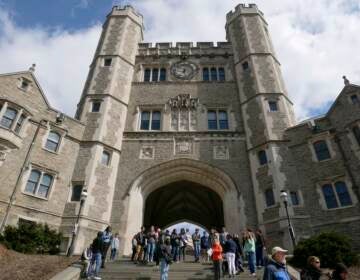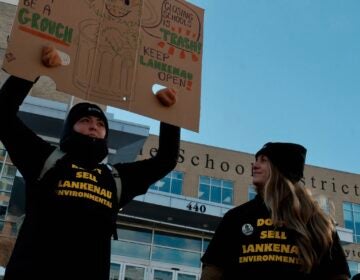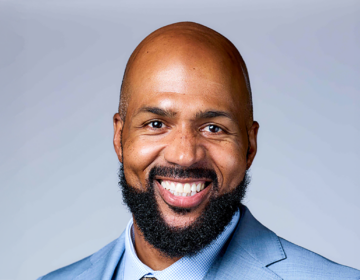Last year’s budget unresolved, Gov. Wolf adds $200 million to education funding request
As the battle in the Pennsylvania Capitol over funding public schools this year continues, Gov. Tom Wolf has proposed a $200 million increase for next year’s basic education budget.
Wolf, a Democrat, and the Republicans who control the legislature are still sparring over how much money schools should receive this year. Wolf has been seeking a $377 million boost for K-12 basic education spending for the current year’s budget.
Republicans pushed back against the tax increases needed to get to that number, so negotiations have stalled since the budget was technically due in June.
Wolf signed a budget in late December that included a Republican-backed education spending boost that fell well short of his goal. Wolf authorized only six months worth of school spending, and he used his veto pen to zero out other budget items in an attempt to force Republican leaders back to the table to strike a grand bargain.
More than a month past that action, the parties have shown little sign of nearing consensus — a prospect that grows more difficult as lawmakers enter the primary election season.
Next week, Wolf will lay out his full vision for next year’s budget. On Tuesday, he said he’ll seek an additional $200 million boost for schools on top of this year’s $377 million request.
Even that sum falls short of restoring the funding cuts of past years, education advocates say.
“The $200 million increase proposed by the governor for next year does not keep us on track toward the long-term goal,” said Charlie Lyons, spokesman for the Campaign for Fair Education Funding. “We urge the governor and legislature to increase that amount when enacting a final budget for the next fiscal year.”
“The difficult truth is that we really need to be at something between $300 million and $400 million per year to make sufficient progress for today’s students,” said Susan Spicka, advocacy coordinator for Education Voters of PA. “We need the governor and the legislature to fully commit to the progress that we need to make, and we definitely need the partisans to quit trying to block the governor. The people paying the price for this theater are Pennsylvania’s children.”
The Wolf administration agreed with the advocates on principle, but defended the $200 million proposal.
“We are being realistic while also continuing the governor’s fight to restore the funding that was cut from education and continuing his efforts to invest in education,” said spokesman Jeffrey Sheridan.
The optics in Harrisburg, though, remain the same.
Senate Republicans will not agree to a big education boost or tax increase without reworking the state pension system to take some of the market risk away from taxpayers by partly reducing guaranteed payouts.
Wolf has said he’d agree to this, but the proposal has not gained traction in the state House of Representatives among any Democrats and many Republicans.
“Until we fix the problem of the pension system and stop that leak in the bucket, we can’t continue to go back to taxpayers, go back to homeowners and say, ‘Give us more money. Give us more money,’ when the No. 1 driver of property tax increases and cuts to classrooms is pensions,” said Jennifer Kocher, spokesman for Senate Majority Leader Jake Corman. “We have not fixed that problem.”
Steve Miskin, a spokesman for the House Republicans, seemed baffled by Wolf’s request.
“It’s good that he did this on Groundhog Day, because it’s just more of the same,” said Miskin. “He keeps thinking, ‘Let’s spend more without controls.'”
The Wolf administration has not yet committed to a specific tax hike needed to cover the funding boost.
By early spring, school districts across the state will again begin to run out of money, and pressure will build for the governor and the legislature to reach a compromise.
WHYY is your source for fact-based, in-depth journalism and information. As a nonprofit organization, we rely on financial support from readers like you. Please give today.





